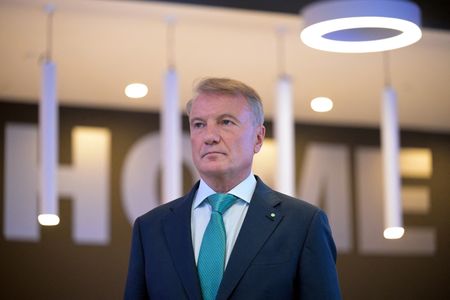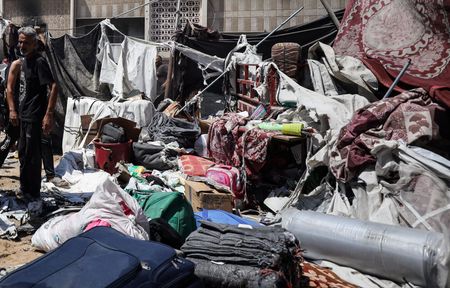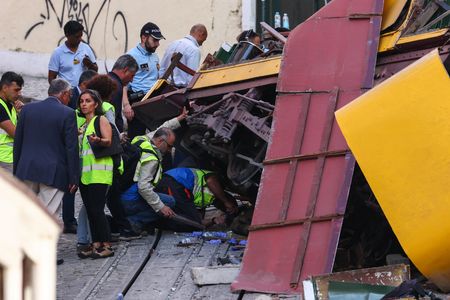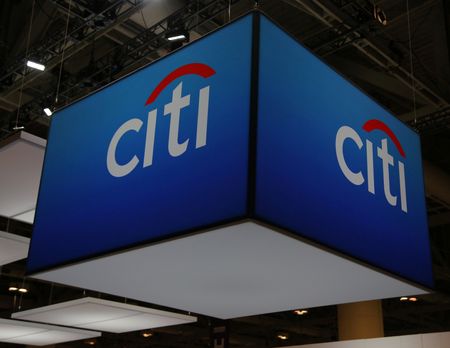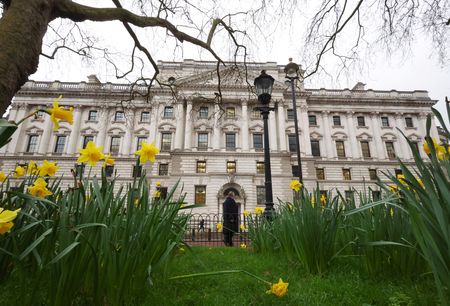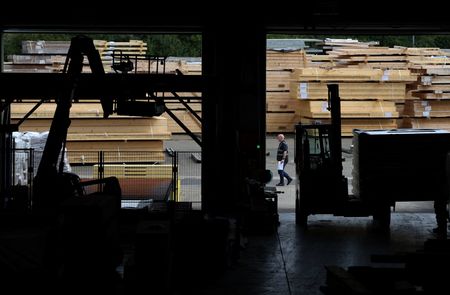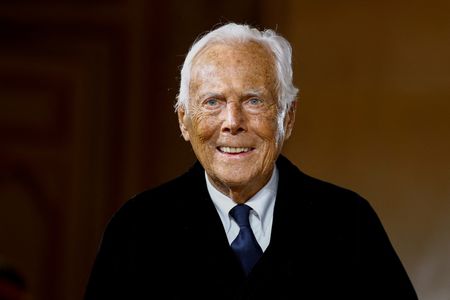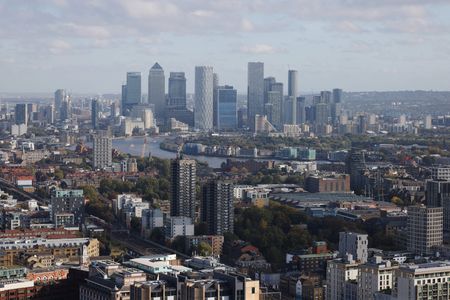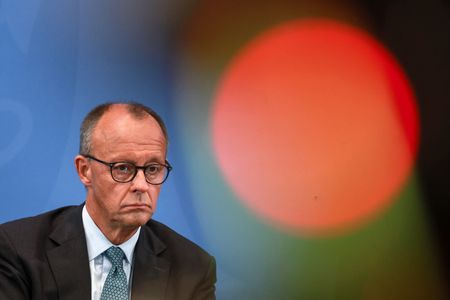By Olesya Astakhova
VLADIVOSTOK, Russia (Reuters) -Sberbank CEO German Gref, one of Russia’s most powerful bankers, warned on Thursday that the economy was stagnating and that unless the central bank slashed interest rates then the country would fall into recession.
Russia’s war economy grew at 4.1% in 2023 and 4.3% in 2024, far faster than G7 countries, despite multiple rounds of Western sanctions imposed after its invasion of Ukraine in 2022, but it is slowing sharply under the weight of high interest rates.
Russia’s highest military spending since the Cold War has stoked inflation, which prompted the central bank to raise its key interest rate to 21% in October, the highest level since the early years of President Vladimir Putin’s rule in 2003.
The central bank cut to 20% in June and then to 18% in July, but there have been a series of warnings from senior officials about the fate of the economy, which they say is still shackled by the crippling cost of credit.
Speaking to reporters on the sidelines of the Eastern Economic Forum in the city of Vladivostok, Gref, a former economy minister, said that in the second quarter, the economy looked as if it was in “technical stagnation”.
Gref said the expected cut in rates to 14% by year-end from the current 18% was not enough to revive the economy – and suggested that only if the rates were cut to 12% would the economy recover.
“It is important to move out of this period of controlled cooling of the economy so that it does not turn into stagnation, because reviving the economy will be much more difficult than cooling it down,” he said.
Gref said that data from banks – received faster than state statistics – showed a sharp slowdown and that there were signs that growth was close to zero in July and August.
Finance Minister Anton Siluanov told Putin last week that Russia’s economic growth is expected to slow to 1.5% in 2025, far below the earlier 2.5% forecast, as high interest rates imposed to reduce inflation have stifled borrowing.
Pressure is mounting on the central bank – run by Gref’s former colleague Elvira Nabiullina – to cut rates at its Sept. 12 meeting, with a slew of warnings from senior officials and influential business chiefs about the impact of high rates.
RATE DECISION
Gref said he hoped the central bank would heed the warnings and avoid a recession.
“At current inflation levels, the rate at which we can hope for economic recovery is 12% or lower. So somewhere around these levels, we will most likely see economic recovery.”
Nabiullina’s deputy, Alexei Zabotkin, said on Tuesday that Russia had made substantial progress in fighting inflation but that the central bank was exercising caution in its assessments of inflation reduction to ensure they are not overly premature or overly optimistic.
Reuters reported exclusively in January that Putin had grown increasingly concerned about distortions in Russia’s wartime economy, particularly with a cut to investment by major companies due to high interest rates.
“The latest data suggests that the economy is cooling down faster than expected,” said Economy Minister Maxim Reshetnikov, whose staffers are finalising the latest set of macroeconomic forecasts for the next year’s budget.
Reshetnikov said producer prices had not risen indicating that there was not enough demand in the economy, and that some machine-building enterprises had switched to four-day weeks to reduce costs.
During Putin’s first two terms as president from 2000 to 2008, the size of the economy soared to $1.7 trillion from less than $200 billion in 1999. But Russia’s nominal GDP is now just $2.2 trillion, about the same level it was in 2013, the year before Russia annexed Crimea from Ukraine.
(Reporting by Olesya Astakhova and Darya Korsunskaya; writing by Vladimir Soldatkin and Guy Faulconbridge; editing by Jamie Freed, Sonali Paul, Philippa Fletcher and Mark Heinrich)

